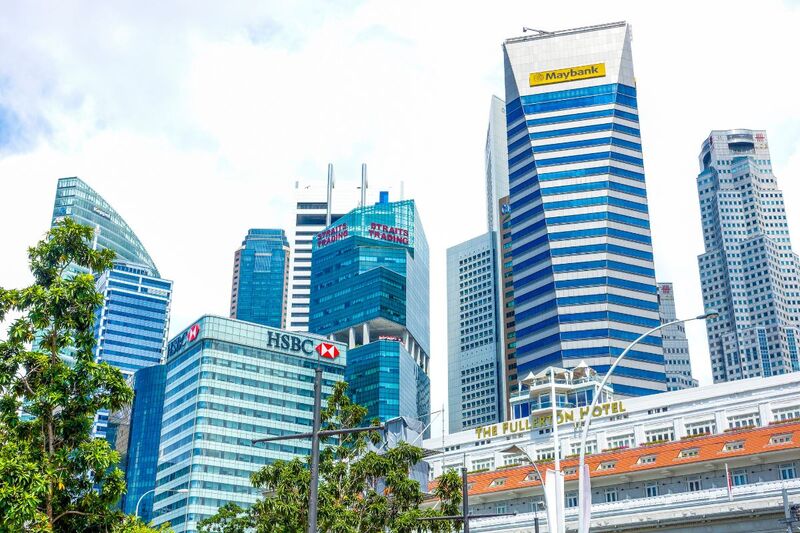How to Conduct a Video Interview in Singapore: Best Practices and Key Considerations
In the rapidly evolving business landscape of Singapore, video interviews have become a crucial tool for recruiters and employers. The shift towards remote work, accelerated by the COVID-19 pandemic, has cemented video interviews as a standard part of the hiring process. This article explores best practices for conducting video interviews in Singapore, supported by relevant statistics and data.
The Rise of Video Interviews in Singapore
The adoption of video interviews in Singapore has seen significant growth over the past few years. According to a 2023 survey by the Singapore Human Resources Institute (SHRI), 78% of companies in Singapore reported using video interviews as part of their recruitment process. This is a notable increase from just 45% in 2019. The convenience, cost-effectiveness, and ability to reach a broader talent pool are key factors driving this trend.
As businesses continue to navigate a hybrid work environment, video interviews offer flexibility for both employers and candidates. However, to ensure a smooth and effective video interview process, it’s important to follow best practices tailored to the unique cultural and business environment in Singapore.
Best Practices for Conducting a Video Interview in Singapore
1. Prepare the Technology
a) Test Your Equipment: Before the interview, test your video conferencing software, camera, microphone, and internet connection. According to a report by LinkedIn Singapore, 65% of recruiters cited technical difficulties as a significant challenge during video interviews. Ensuring that everything is functioning properly will help avoid disruptions.
b) Choose the Right Platform: Popular platforms in Singapore include Zoom, Microsoft Teams, and Google Meet. Choose a platform that both parties are comfortable with and that meets the security and functionality needs of the interview.
2. Set a Professional Environment
a) Background and Lighting: Ensure that your background is clean, uncluttered, and professional. Good lighting is essential to ensure clear visibility. A survey by JobStreet Singapore revealed that 53% of candidates feel more confident and engaged when the interviewer’s environment is professional and well-lit.
b) Minimise Distractions: Conduct the interview in a quiet space where you are unlikely to be interrupted. This helps maintain focus and shows respect for the candidate’s time.
3. Prepare for the Interview
a) Know the Candidate’s Background: Review the candidate’s resume and any other relevant documents beforehand. According to a study by the Institute of Human Resource Professionals (IHRP), 48% of candidates in Singapore feel more valued when the interviewer is well-prepared.
b) Structured Interview Questions: Prepare a set of structured interview questions tailored to the role and the candidate’s experience. This ensures consistency and fairness in the interview process.
4. Cultural Sensitivity and Communication
a) Respect Cultural Norms: Singapore is a multicultural society, and it’s important to be aware of cultural sensitivities during the interview. For instance, addressing the candidate respectfully, being mindful of body language, and allowing for pauses in conversation are key aspects of effective communication.
b) Clear Communication: Speak clearly and at a moderate pace. Ensure that questions are understood and allow the candidate time to respond fully. If the candidate prefers to speak in a different language or if there are any language barriers, consider providing interpretation services or allowing for bilingual responses.
5. Engage the Candidate
a) Build Rapport: Start the interview with a brief introduction and some small talk to put the candidate at ease. Building rapport is crucial in video interviews, where the lack of physical presence can sometimes create a barrier.
b) Encourage Questions: Give the candidate opportunities to ask questions throughout the interview. This not only helps clarify their understanding of the role but also demonstrates that you value their input.
6. Follow-Up and Feedback
a) Provide Timely Feedback: After the interview, provide timely feedback to the candidate. A survey by the Singapore Business Federation (SBF) found that 72% of candidates appreciate receiving feedback within a week of the interview. This practice helps maintain a positive candidate experience and enhances your employer brand.
b) Evaluate Objectively: Use a standardised evaluation form to assess the candidate’s performance. This helps ensure that all candidates are evaluated fairly and consistently, reducing bias in the decision-making process.
Conclusion
Conducting a video interview in Singapore requires careful preparation, cultural sensitivity, and effective communication. By following these best practices, employers can ensure a smooth and successful interview process that leaves a positive impression on candidates.
As video interviews become an integral part of recruitment in Singapore, staying informed about the latest trends and continuously refining your approach will help attract top talent and build a strong workforce.
Seeking Your Next Career Opportunity?
Submit your CV — Our trusted Career Consultants will review your resume and contact you if we find a position that matches your profile!
OR
Looking to Hire?
Please fill in this Inquiry Form — our Recruitment Consultants will be in touch with you soon!
Disclaimer:
The information provided in our blog articles is intended for general informational purposes only. It is not a substitute for professional advice and should not be relied upon as such.
While we strive to provide accurate and up-to-date information, the ever-evolving nature of certain topics may result in content becoming outdated or inaccurate over time. Therefore, we recommend consulting with qualified professionals or experts in the respective fields for specific advice or guidance. Any actions taken based on the information contained in our blog articles are solely at the reader's discretion and risk. We do not assume any responsibility or liability for any loss, damage, or adverse consequences incurred as a result of such actions.
We may occasionally provide links to external websites or resources for further information or reference. These links are provided for convenience and do not imply endorsement or responsibility for the content or accuracy of these external sources. Our blog articles may also include personal opinions, views, or interpretations of the authors, which do not necessarily reflect the views of our organisation as a whole. We encourage readers to verify the accuracy and relevance of information presented in our blog articles and to seek professional advice when needed.
Your use of this website and its content constitutes acceptance of this disclaimer.
Sources:
1. Singapore Human Resources Institute (SHRI) Recruitment Survey 2023
2. LinkedIn Singapore Video Interview Trends Report 2023
3. JobStreet Singapore Candidate Experience Survey 2023
4. Institute of Human Resource Professionals (IHRP) Interview Best Practices Report 2023
5. Singapore Business Federation (SBF) Recruitment Insights 2023






